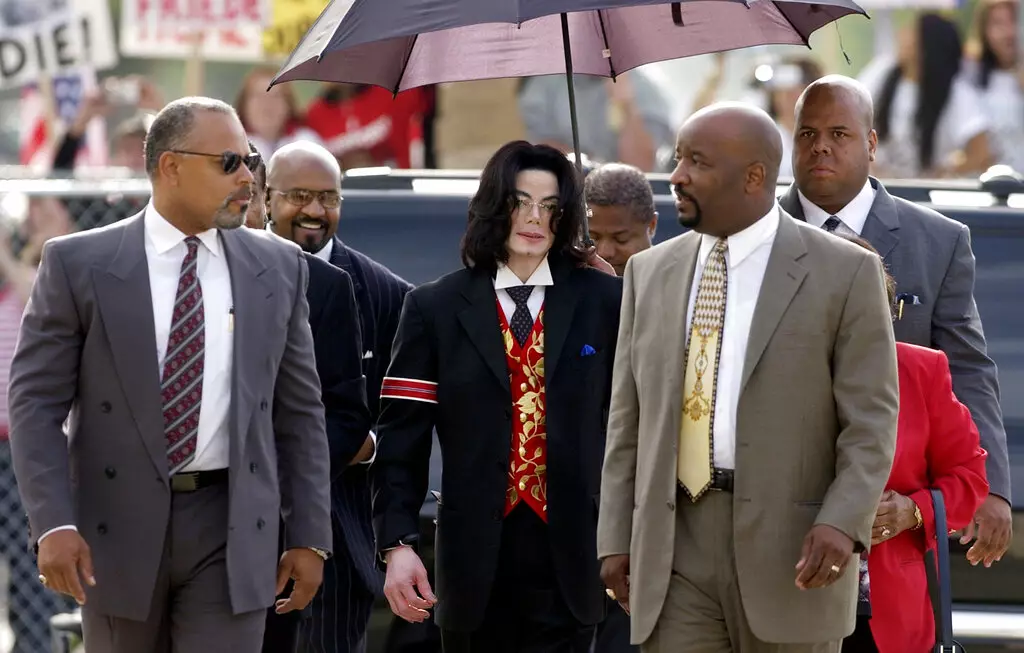In an ambitious move, Channel 4 is set to release a documentary series titled *The Trial of Michael Jackson*, produced by Wonderhood Studios. This series will delve deep into the sensationalized legal battle surrounding the King of Pop, which took place in 2005. While many media outlets have documented Michael Jackson’s multifaceted life, this unique offering seeks to portray not just the trial itself, but also the intricate relationship he had with his fame, the media, and his legacy.
Contrary to mere sensationalism that often characterizes discussions around Jackson, this documentary promises a more nuanced portrayal. It will include interviews and contributions from individuals who have remained silent until now, offering fresh insights into Jackson’s life leading up to the trial, as well as the socio-cultural context in which these events unfolded. The framing of the trial against the backdrop of Jackson’s meteoric rise to fame presents an opportunity for a deeper understanding rather than sterile courtroom analysis.
At the heart of this documentary lies Jackson’s highly publicized trial for allegedly molesting 13-year-old Gavin Arvizo. Despite the allegations, the singer was acquitted of all charges, but the incident served as a pivotal moment in his life—a moment that saw him grapple with public perception, media portrayal, and personal turmoil.
The timing of this documentary is particularly poignant as it comes in the wake of *Leaving Neverland*, a powerful documentary that aired on HBO and Channel 4, which reignited the debate about Jackson’s legacy. *Leaving Neverland* presented allegations from two additional men who claimed that Jackson had sexually abused them as children. The series was hailed as one of the network’s best-performing shows and rekindled discussions on the pervasive issues surrounding abuse and accountability in the entertainment industry. In this context, Channel 4’s upcoming series not only revisits the court case but also acts as a means to navigate the complex emotional landscape surrounding Jackson’s life posthumously.
The documentary series is spearheaded by Anna Miralis and Alisa Pomeroy, senior figures at Channel 4, alongside a dedicated team from Wonderhood Studios. This assembly of experienced professionals raises expectations regarding the depth and quality of the narrative. As Pomeroy notes, “This remarkable series is destined to be compelling, insightful, and truly remarkable.” It reflects a commitment to exploring difficult topics with sensitivity and intellect, indicating a shift toward substantive documentary filmmaking in the media landscape.
Channel 4’s decision to invest in such a challenging subject matter signifies a broader trend where networks are prioritizing authenticity and powerful storytelling over superficial narratives. It serves as a reminder of the importance of documenting critical conversations around celebrities and their complicated relationships with fame, media, and, ultimately, society.
*The Trial of Michael Jackson* does not take place in a vacuum, but amidst a cultural reckoning regarding the treatment of celebrities, accountability, and the legacies they leave behind. As the entertainment industry navigates the predicaments raised by the #MeToo movement, this documentary provides staggering relevance. It not only sheds light on Jackson’s complicated narrative but also reflects the changing societal expectations of accountability in the arts.
The mix of archival footage, interviews, and narratives in this forthcoming series may well challenge viewers to consider the consequences of fame, both for the public figures we idolize and the victims who often remain unheard. By re-examining Michael Jackson’s trial through the lens of historical context and cultural critique, Channel 4 is poised to become a pivotal player in redefining how we engage with the narratives of flawed icons.
This thoughtfully developed series stands to contribute significantly to our understanding of both Michael Jackson and the myriad dynamics at play in celebrity culture. It enhances our conversations about legacy, memory, and accountability, ultimately heralding a new era in documentary storytelling.

Leave a Reply